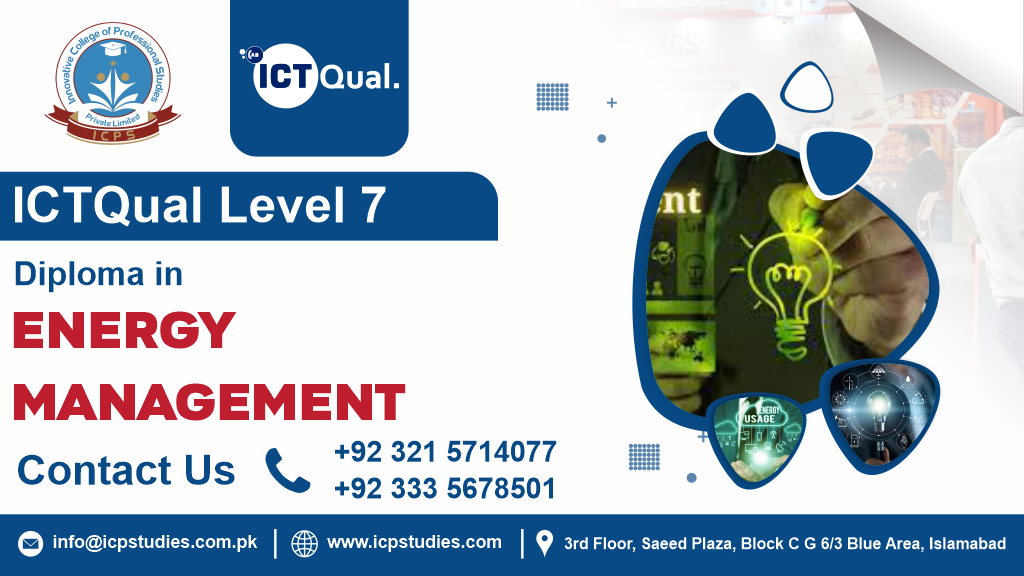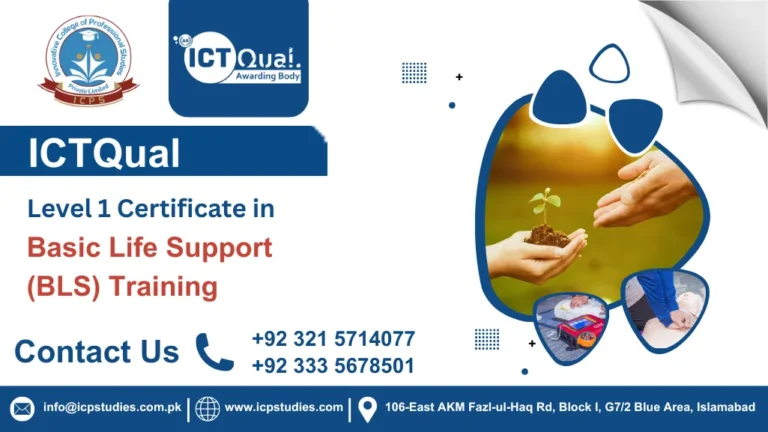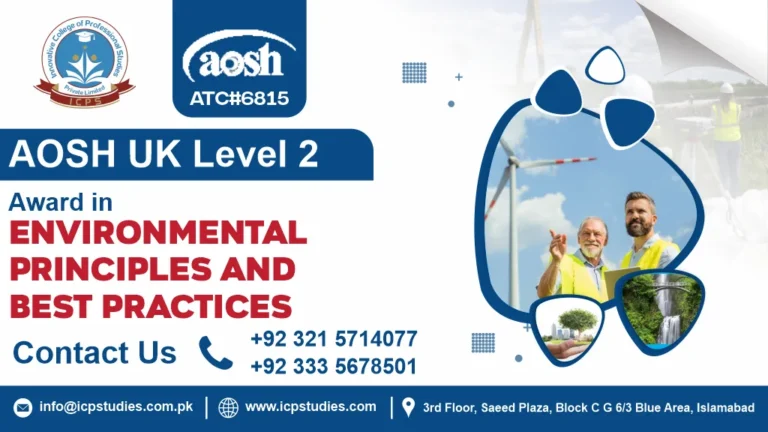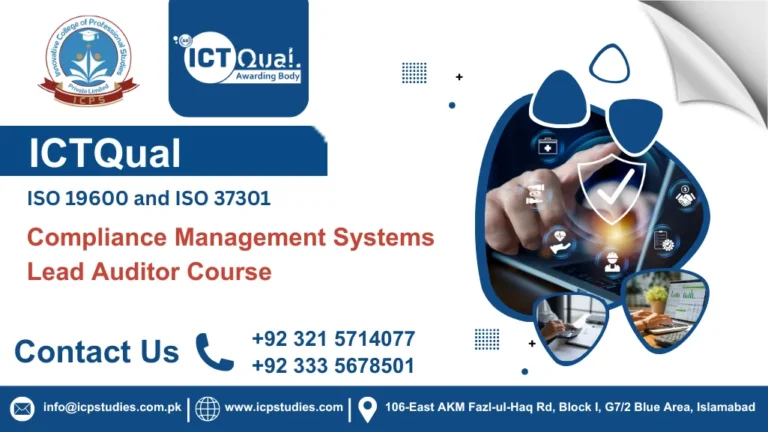The ICTQual Level 7 Diploma in Energy Management is a prestigious qualification designed for professionals aiming to advance their careers in the field of energy management. This diploma provides comprehensive knowledge and skills necessary to effectively manage energy resources, drive sustainability initiatives, and navigate the complexities of the evolving energy sector.
Participants in the Level 7 Diploma undergo rigorous training that combines theoretical understanding with practical applications in energy management. The course covers a wide range of topics including energy auditing, renewable energy technologies, energy efficiency strategies, policy development, and sustainability practices. Through interactive lectures, case studies, and industry projects, participants gain insights into global energy challenges and learn to implement innovative solutions in energy management.
ICTQual Level 7 Diploma in Energy Management equips participants with advanced skills, knowledge, and leadership abilities necessary to excel in managing energy resources sustainably. By mastering energy management principles, renewable technologies, and policy development, professionals play a pivotal role in shaping a sustainable future for industries and communities worldwide.
All About ICTQual Level 7 Diploma in Energy Management
Course Overview
The ICTQual Level 7 Diploma in Energy Management is an advanced qualification designed to equip professionals with comprehensive knowledge and skills in the field of energy management. This diploma is recognized internationally and aims to prepare individuals to address the complex challenges and opportunities in the energy sector, particularly focusing on sustainability, efficiency, and strategic management of energy resources.
The ICTQual Level 7 Diploma in Energy Management is designed for professionals seeking to deepen their expertise in energy management, sustainability, and renewable energy technologies. By equipping graduates with advanced skills and knowledge, this diploma prepares them to lead transformative initiatives that contribute to global energy efficiency goals and environmental sustainability.
Study Units
- Introduction to energy management
- Technical and Operational
- Behavioural Change and Motivation
- Waste Management
- Transport
- Water
- Procurement
- Information & Communications Technology
- Energy Assessments, Measurements and Verification
- Regulatory & Legal Compliance and Carbon Management
- Strategy/Plan in energy management
The entry requirements for the ICTQual Level 7 Diploma in Energy Management typically include:
- Age Requirement: Participants must be at least 18 years old.
- Educational Background: A relevant undergraduate degree or equivalent qualification in fields such as engineering, environmental science, or energy management.
- Work Experience: Significant professional experience in energy management, sustainability, or related fields, ideally in a leadership or strategic role.
- Advanced Literacy and Numeracy: Strong skills in reading, writing, and analytical thinking to engage with complex course materials and assessments.
- Health and Safety Awareness: A thorough understanding of health and safety practices relevant to energy management.
- Professional Development: Evidence of ongoing professional development in energy management or related areas may be required.
- Registration: Completion of necessary registration forms and payment of any applicable fees.
Always check with the specific training provider for any additional or specific entry requirements, as they may vary.
4o mini
The ICTQual Level 7 Diploma in Energy Management is designed for:
- Senior Energy Managers: Professionals responsible for overseeing and leading energy management strategies within organizations.
- Sustainability Directors: Individuals focused on developing and implementing sustainability initiatives at a strategic level.
- Energy Consultants: Experts providing high-level advice on energy efficiency, sustainability, and regulatory compliance.
- Facilities and Operations Managers: Personnel managing large-scale energy systems and ensuring compliance with energy regulations.
- Policy Makers and Analysts: Individuals involved in developing energy policies or assessing energy management programs.
- Engineers and Researchers: Professionals engaged in advanced research or development related to energy systems and efficiency.
This course equips participants with the advanced skills and knowledge needed to lead energy management initiatives, drive sustainability efforts, and make informed strategic decisions regarding energy use and policy.
Learning Outcomes
The ICTQual Level 7 Diploma in Energy Management is typically designed for professionals who are already working or seeking to work in the field of energy management. This course is suitable for:
- Energy Managers and Consultants: Individuals who are currently involved in managing energy resources within organizations or providing consultancy services related to energy efficiency and sustainability.
- Facility Managers: Professionals responsible for the efficient operation and maintenance of buildings and facilities, with a focus on energy consumption and conservation.
- Environmental Managers: Those involved in environmental management roles, particularly in industries where energy use and environmental impact are significant concerns.
- Engineers and Technicians: Those with an engineering background looking to specialize in energy management or upgrade their skills to include energy-efficient technologies.
- Policy Makers and Regulators: Government officials, policymakers, and regulators involved in shaping energy policies and regulations.
- Energy Auditors: Professionals conducting energy audits to assess energy usage patterns and identify opportunities for improvement.
- Sustainability Officers: Individuals responsible for implementing sustainability initiatives within organizations, where energy management plays a crucial role.
- Graduates and Career Changers: Individuals with a relevant undergraduate degree or those looking to transition into the field of energy management from related disciplines.
This diploma program is structured to provide advanced knowledge and skills necessary for managing energy resources effectively, implementing energy-saving measures, and contributing to sustainable development goals within various sectors.
FAQs about ICTQual Level 7 Diploma in Energy Management







